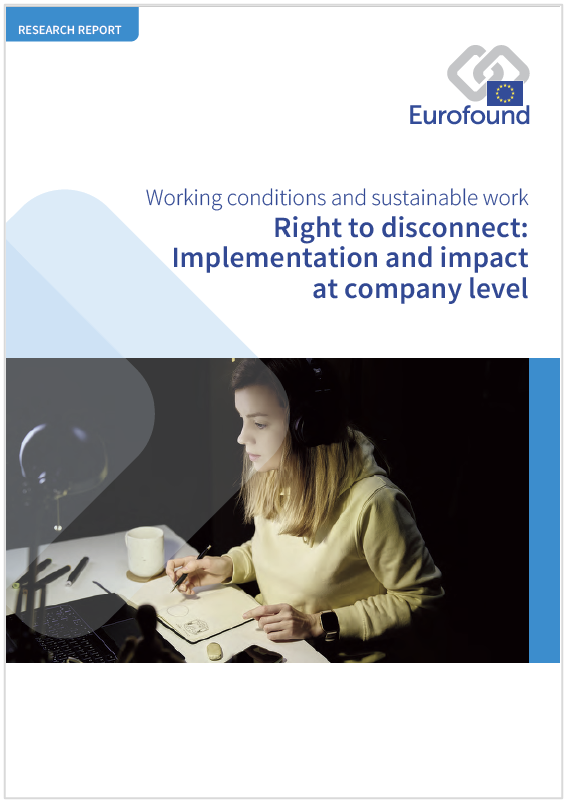| 1 x afterRenderRawModule mod_menu (Temi) (292.99KB) (14.64%) | 39.78ms |
| 1 x afterRenderComponent com_content (516.53KB) (12.4%) | 33.70ms |
| 1 x afterRenderRawModule mod_menu (Main Menu) (21.86KB) (10.92%) | 29.67ms |
| 1 x After Access::preloadPermissions (com_content) (16.77MB) (10.13%) | 27.53ms |
| 1 x afterInitialise (3.34MB) (8.25%) | 22.40ms |
| 1 x afterRender (775.91KB) (8.12%) | 22.05ms |
| 1 x afterRenderRawModule mod_articles_categories (Sicurezza lavoro) (450.5KB) (7.36%) | 20.00ms |
| 1 x beforeRenderRawModule mod_login (Accedi all'area riservata) (1.75MB) (4.69%) | 12.75ms |
| 1 x afterRoute (370.65KB) (2.97%) | 8.06ms |
| 1 x afterRenderRawModule mod_menu (Documenti Abbonati) (164.93KB) (2.26%) | 6.13ms |
| 1 x afterRenderRawModule mod_menu (Top Menu) (31.08KB) (1.64%) | 4.47ms |
| 1 x afterRenderRawModule mod_menu (Policies) (23.48KB) (1.55%) | 4.21ms |
| 1 x afterLoad (86.52KB) (1.51%) | 4.09ms |
| 1 x afterRenderRawModule mod_menu (Marketing) (21.64KB) (1.38%) | 3.74ms |
| 1 x beforeRenderRawModule mod_menu (Main Menu) (33.91KB) (1.3%) | 3.53ms |
| 1 x afterRenderRawModule mod_menu (Social) (60.09KB) (1.17%) | 3.17ms |
| 1 x afterRenderRawModule mod_menu (Store) (18.38KB) (1.16%) | 3.16ms |
| 1 x afterRenderRawModule mod_menu (Media) (14.41KB) (1%) | 2.71ms |
| 1 x afterRenderRawModule mod_login (Accedi all'area riservata) (62.99KB) (0.98%) | 2.66ms |
| 1 x afterRenderRawModule mod_menu (Info) (10.42KB) (0.81%) | 2.19ms |
| 1 x Before Access::preloadComponents (all components) (34.53KB) (0.45%) | 1.23ms |
| 1 x beforeRenderComponent com_content (37.2KB) (0.4%) | 1.09ms |
| 1 x afterRenderModule mod_menu (Main Menu) (11.27KB) (0.22%) | 606μs |
| 1 x afterRenderRawModule mod_custom (Certifico s.r.l.) (4.22KB) (0.22%) | 603μs |
| 1 x afterRenderModule mod_articles_categories (Sicurezza lavoro) (14.52KB) (0.19%) | 526μs |
| 1 x afterRenderModule mod_menu (Social) (3.92KB) (0.19%) | 509μs |
| 1 x afterRenderModule mod_menu (Media) (3.11KB) (0.19%) | 504μs |
| 1 x afterRenderModule mod_menu (Policies) (3.3KB) (0.18%) | 501μs |
| 1 x afterRenderModule mod_menu (Marketing) (3.3KB) (0.18%) | 499μs |
| 1 x afterRenderModule mod_menu (Info) (3.05KB) (0.18%) | 497μs |
| 1 x afterRenderModule mod_menu (Temi) (22.67KB) (0.18%) | 493μs |
| 1 x afterRenderModule mod_custom (Certifico s.r.l.) (3.36KB) (0.18%) | 492μs |
| 1 x afterRenderModule mod_custom (Titolo "Sicurezza lavoro") (2.69KB) (0.18%) | 488μs |
| 1 x afterRenderModule mod_menu (Documenti Abbonati) (3.94KB) (0.18%) | 483μs |
| 1 x After Access::preloadComponents (all components) (115.88KB) (0.18%) | 479μs |
| 1 x afterRenderModule mod_menu (Store) (3.3KB) (0.18%) | 478μs |
| 1 x beforeRenderRawModule mod_menu (Social) (41.43KB) (0.17%) | 460μs |
| 1 x Before Access::getAssetRules (id:42567 name:com_content.article.20969) (514.65KB) (0.16%) | 424μs |
| 1 x afterRenderModule mod_login (Accedi all'area riservata) (5.95KB) (0.12%) | 332μs |
| 1 x afterDispatch (2.44KB) (0.08%) | 228μs |
| 1 x afterRenderModule mod_custom (Regolamento Macchine) (5.08KB) (0.07%) | 178μs |
| 1 x After Access::getAssetRules (id:42567 name:com_content.article.20969) (12.67KB) (0.06%) | 159μs |
| 1 x afterRenderRawModule mod_custom (Regolamento Macchine) (1.03KB) (0.04%) | 112μs |
| 1 x afterRenderRawModule mod_custom (Titolo "Sicurezza lavoro") (1008B) (0.04%) | 111μs |
| 1 x afterRenderRawModule mod_custom (Glossario Certifico HSE) (1.03KB) (0.03%) | 90μs |
| 1 x afterRenderRawModule mod_custom (Codice Prevenzione Incendi | RTO II) (3.41KB) (0.03%) | 88μs |
| 1 x afterRenderRawModule mod_custom (D. Lgs. 81/2008 - TUSSL) (928B) (0.03%) | 86μs |
| 1 x afterRenderRawModule mod_custom (CEM4 || Ultimo aggiornamento) (1.03KB) (0.03%) | 86μs |
| 1 x afterRenderRawModule mod_custom (TUA | Testo Unico Ambiente) (928B) (0.03%) | 86μs |
| 1 x afterRenderRawModule mod_custom (D. Lgs. 231/2001 - Responsabilità amministrativa enti) (960B) (0.03%) | 85μs |
| 1 x afterRenderRawModule mod_custom (Abbonamento Full Plus) (912B) (0.03%) | 85μs |
| 1 x afterRenderRawModule mod_custom (Codice Unico Sicurezza) (928B) (0.03%) | 84μs |
| 1 x afterRenderRawModule mod_custom (DM 21 Marzo 1973 | MOCA IT) (1.03KB) (0.03%) | 84μs |
| 1 x afterRenderRawModule mod_custom (Food Safety book) (12.02KB) (0.03%) | 84μs |
| 1 x afterRenderRawModule mod_custom (MOCA - GMP | Consolidato) (1.03KB) (0.03%) | 83μs |
| 1 x afterRenderRawModule mod_custom (TUSSL / Link) (976B) (0.03%) | 83μs |
| 1 x afterRenderRawModule mod_custom (Certifico ADR) (1.02KB) (0.03%) | 83μs |
| 1 x afterRenderRawModule mod_custom (MEPA) (960B) (0.03%) | 83μs |
| 1 x afterRenderRawModule mod_custom (D. Lgs. 196/2003 - Codice protezione dati personali | GDPR) (960B) (0.03%) | 82μs |
| 1 x afterRenderRawModule mod_custom (D. Lgs. 101/2020 - Protezione esposizione radiazioni ionizzanti) (960B) (0.03%) | 82μs |
| 1 x afterRenderRawModule mod_custom (Direttiva macchine e norme armonizzate) (1.05KB) (0.03%) | 81μs |
| 1 x afterRenderRawModule mod_custom (Store Certifico) (976B) (0.03%) | 81μs |
| 1 x afterRenderRawModule mod_custom (Abbonamento Full) (912B) (0.03%) | 80μs |
| 1 x afterRenderModule mod_menu (Top Menu) (4.11KB) (0.03%) | 76μs |
| 1 x afterRenderModule mod_custom (D. Lgs. 81/2008 - TUSSL) (4.02KB) (0.03%) | 74μs |
| 1 x afterRenderModule mod_custom (Glossario Certifico HSE) (3.77KB) (0.03%) | 71μs |
| 1 x afterRenderModule mod_custom (Codice Prevenzione Incendi | RTO II) (4.16KB) (0.03%) | 70μs |
| 1 x afterRenderModule mod_custom (Abbonamento Full) (4.89KB) (0.03%) | 70μs |
| 1 x afterRenderModule mod_custom (TUA | Testo Unico Ambiente) (4.03KB) (0.03%) | 70μs |
| 1 x afterRenderModule mod_custom (TUSSL / Link) (3.64KB) (0.03%) | 70μs |
| 1 x afterRenderModule mod_custom (CEM4 || Ultimo aggiornamento) (3.91KB) (0.03%) | 70μs |
| 1 x afterRenderModule mod_custom (Store Certifico) (3.58KB) (0.03%) | 68μs |
| 1 x afterRenderModule mod_custom (D. Lgs. 231/2001 - Responsabilità amministrativa enti) (4.42KB) (0.02%) | 67μs |
| 1 x afterRenderModule mod_custom (D. Lgs. 196/2003 - Codice protezione dati personali | GDPR) (4.44KB) (0.02%) | 67μs |
| 1 x afterRenderModule mod_custom (Direttiva macchine e norme armonizzate) (4.16KB) (0.02%) | 67μs |
| 1 x afterRenderModule mod_custom (Certifico ADR) (3.89KB) (0.02%) | 67μs |
| 1 x afterRenderModule mod_custom (DM 21 Marzo 1973 | MOCA IT) (4.03KB) (0.02%) | 67μs |
| 1 x afterRenderModule mod_custom (Codice Unico Sicurezza) (4.02KB) (0.02%) | 66μs |
| 1 x afterRenderModule mod_custom (Food Safety book) (4.02KB) (0.02%) | 66μs |
| 1 x afterRenderModule mod_custom (D. Lgs. 101/2020 - Protezione esposizione radiazioni ionizzanti) (4.44KB) (0.02%) | 65μs |
| 1 x afterRenderModule mod_custom (Abbonamento Full Plus) (4.14KB) (0.02%) | 65μs |
| 1 x afterRenderModule mod_custom (MOCA - GMP | Consolidato) (4.02KB) (0.02%) | 65μs |
| 1 x afterRenderModule mod_custom (MEPA) (3.75KB) (0.02%) | 64μs |
| 1 x beforeRenderRawModule mod_menu (Top Menu) (2.56KB) (0.02%) | 51μs |
| 1 x beforeRenderRawModule mod_custom (Titolo "Sicurezza lavoro") (2.18KB) (0.01%) | 29μs |
| 1 x beforeRenderRawModule mod_menu (Policies) (616B) (0.01%) | 26μs |
| 1 x beforeRenderRawModule mod_custom (Certifico s.r.l.) (2.29KB) (0.01%) | 25μs |
| 1 x beforeRenderRawModule mod_menu (Documenti Abbonati) (1.96KB) (0.01%) | 24μs |
| 1 x beforeRenderRawModule mod_menu (Info) (440B) (0.01%) | 23μs |
| 1 x beforeRenderRawModule mod_menu (Temi) (904B) (0.01%) | 23μs |
| 1 x beforeRenderRawModule mod_menu (Marketing) (896B) (0%) | 10μs |
| 1 x beforeRenderRawModule mod_custom (Regolamento Macchine) (9.7KB) (0%) | 10μs |
| 1 x Before Access::preloadPermissions (com_content) (1.51KB) (0%) | 9μs |
| 1 x beforeRenderRawModule mod_menu (Media) (912B) (0%) | 9μs |
| 1 x beforeRenderRawModule mod_articles_categories (Sicurezza lavoro) (2.36KB) (0%) | 9μs |
| 1 x beforeRenderRawModule mod_menu (Store) (912B) (0%) | 9μs |
| 1 x beforeRenderRawModule mod_custom (D. Lgs. 81/2008 - TUSSL) (13.5KB) (0%) | 7μs |
| 1 x beforeRenderRawModule mod_custom (Codice Prevenzione Incendi | RTO II) (2.25KB) (0%) | 6μs |
| 1 x beforeRenderRawModule mod_custom (CEM4 || Ultimo aggiornamento) (2KB) (0%) | 6μs |
| 1 x beforeRenderRawModule mod_custom (D. Lgs. 196/2003 - Codice protezione dati personali | GDPR) (1.78KB) (0%) | 6μs |
| 1 x beforeRenderRawModule mod_custom (MOCA - GMP | Consolidato) (1.5KB) (0%) | 6μs |
| 1 x beforeRenderRawModule mod_custom (TUA | Testo Unico Ambiente) (1.63KB) (0%) | 5μs |
| 1 x beforeRenderRawModule mod_custom (TUSSL / Link) (2.52KB) (0%) | 5μs |
| 1 x beforeRenderRawModule mod_custom (Glossario Certifico HSE) (2.38KB) (0%) | 5μs |
| 1 x beforeRenderRawModule mod_custom (D. Lgs. 231/2001 - Responsabilità amministrativa enti) (2.09KB) (0%) | 5μs |
| 1 x beforeRenderRawModule mod_custom (D. Lgs. 101/2020 - Protezione esposizione radiazioni ionizzanti) (2.72KB) (0%) | 5μs |
| 1 x beforeRenderRawModule mod_custom (Direttiva macchine e norme armonizzate) (2.73KB) (0%) | 5μs |
| 1 x beforeRenderRawModule mod_custom (Certifico ADR) (2.77KB) (0%) | 5μs |
| 1 x beforeRenderRawModule mod_custom (Codice Unico Sicurezza) (2.25KB) (0%) | 5μs |
| 1 x beforeRenderRawModule mod_custom (DM 21 Marzo 1973 | MOCA IT) (2.38KB) (0%) | 5μs |
| 1 x beforeRenderRawModule mod_custom (Abbonamento Full) (2.39KB) (0%) | 5μs |
| 1 x beforeRenderRawModule mod_custom (Abbonamento Full Plus) (1.63KB) (0%) | 5μs |
| 1 x beforeRenderRawModule mod_custom (Store Certifico) (3.27KB) (0%) | 5μs |
| 1 x beforeRenderRawModule mod_custom (Food Safety book) (2.52KB) (0%) | 5μs |
| 1 x beforeRenderRawModule mod_custom (MEPA) (1.95KB) (0%) | 5μs |
| 1 x beforeRenderModule mod_login (Accedi all'area riservata) (736B) (0%) | 3μs |
| 1 x beforeRenderModule mod_menu (Social) (704B) (0%) | 3μs |
| 1 x beforeRenderModule mod_menu (Top Menu) (704B) (0%) | 3μs |
| 1 x beforeRenderModule mod_menu (Main Menu) (704B) (0%) | 3μs |
| 1 x beforeRenderModule mod_menu (Policies) (704B) (0%) | 3μs |
| 1 x beforeRenderModule mod_menu (Documenti Abbonati) (720B) (0%) | 3μs |
| 1 x beforeRenderModule mod_articles_categories (Sicurezza lavoro) (720B) (0%) | 3μs |
| 1 x beforeRenderModule mod_menu (Temi) (704B) (0%) | 3μs |
| 1 x beforeRenderModule mod_menu (Media) (704B) (0%) | 2μs |
| 1 x beforeRenderModule mod_menu (Store) (704B) (0%) | 2μs |
| 1 x beforeRenderModule mod_custom (Certifico s.r.l.) (720B) (0%) | 2μs |
| 1 x beforeRenderModule mod_menu (Info) (704B) (0%) | 2μs |
| 1 x beforeRenderModule mod_menu (Marketing) (704B) (0%) | 2μs |
| 1 x beforeRenderModule mod_custom (Regolamento Macchine) (720B) (0%) | 1μs |
| 1 x beforeRenderModule mod_custom (TUA | Testo Unico Ambiente) (736B) (0%) | 1μs |
| 1 x beforeRenderModule mod_custom (TUSSL / Link) (720B) (0%) | 1μs |
| 1 x beforeRenderModule mod_custom (MEPA) (704B) (0%) | 1μs |
| 1 x beforeRenderModule mod_custom (Titolo "Sicurezza lavoro") (736B) (0%) | 1μs |
| 1 x beforeRenderModule mod_custom (D. Lgs. 81/2008 - TUSSL) (720B) (0%) | 1μs |
| 1 x beforeRenderModule mod_custom (Codice Prevenzione Incendi | RTO II) (736B) (0%) | 1μs |
| 1 x beforeRenderModule mod_custom (Glossario Certifico HSE) (720B) (0%) | 1μs |
| 1 x beforeRenderModule mod_custom (CEM4 || Ultimo aggiornamento) (736B) (0%) | 1μs |
| 1 x beforeRenderModule mod_custom (D. Lgs. 231/2001 - Responsabilità amministrativa enti) (752B) (0%) | 1μs |
| 1 x beforeRenderModule mod_custom (D. Lgs. 196/2003 - Codice protezione dati personali | GDPR) (768B) (0%) | 1μs |
| 1 x beforeRenderModule mod_custom (D. Lgs. 101/2020 - Protezione esposizione radiazioni ionizzanti) (768B) (0%) | 1μs |
| 1 x beforeRenderModule mod_custom (Direttiva macchine e norme armonizzate) (736B) (0%) | 1μs |
| 1 x beforeRenderModule mod_custom (Certifico ADR) (720B) (0%) | 1μs |
| 1 x beforeRenderModule mod_custom (MOCA - GMP | Consolidato) (736B) (0%) | 1μs |
| 1 x beforeRenderModule mod_custom (Codice Unico Sicurezza) (720B) (0%) | 1μs |
| 1 x beforeRenderModule mod_custom (DM 21 Marzo 1973 | MOCA IT) (736B) (0%) | 1μs |
| 1 x beforeRenderModule mod_custom (Abbonamento Full) (720B) (0%) | 1μs |
| 1 x beforeRenderModule mod_custom (Abbonamento Full Plus) (720B) (0%) | 1μs |
| 1 x beforeRenderModule mod_custom (Store Certifico) (720B) (0%) | 1μs |
| 1 x beforeRenderModule mod_custom (Food Safety book) (720B) (0%) | 1μs |




















